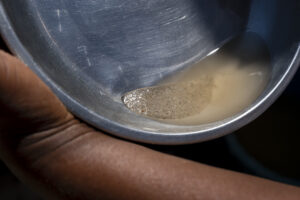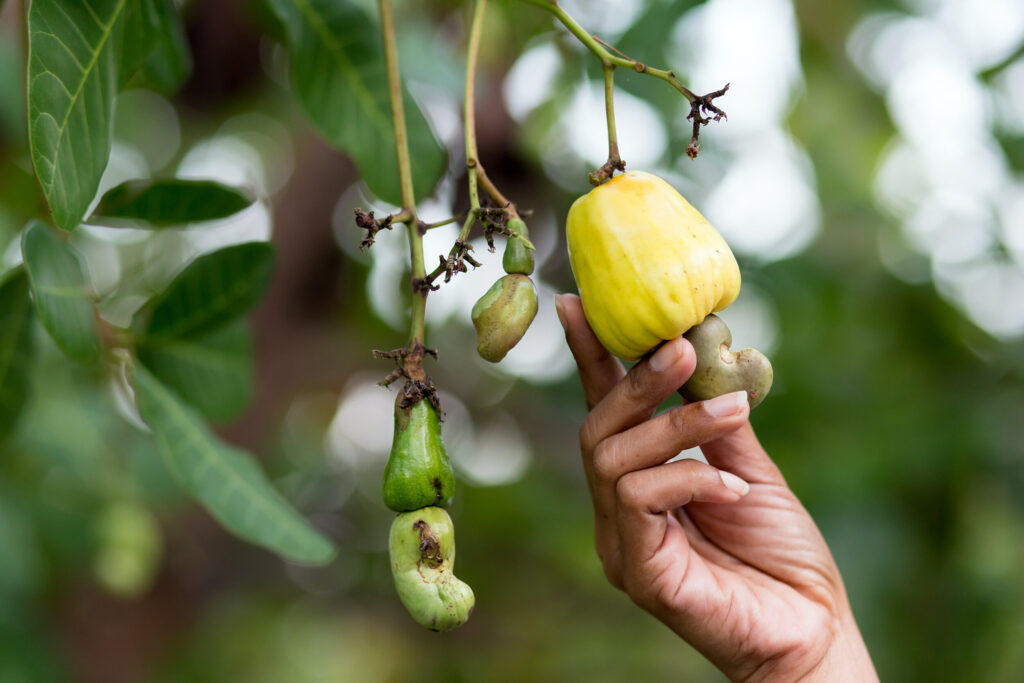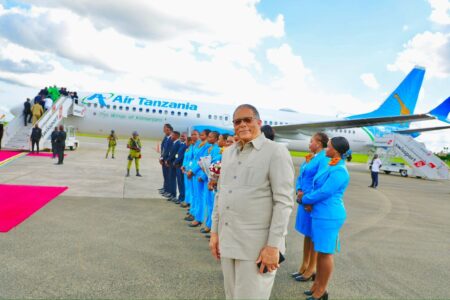- Tanzania cashew nut prices triple.
- The country plans to export processed cashew nuts by 2027.
- Over 1500 acres set for a cashew nut industrial park.
Tanzania is planning to move from the export of raw cashew nuts to processing in-country and export added value exports of the product. Notably, the Tanzania Mercantile Exchange (TMX) has reported that the East African country’s cashew nut prices have more than tripled, growing from several cents per kilogram last harvest to over two dollars this season.
“This is the first time prices have increased to such record high. We welcome this development as the auctions continue,” notes Sharifu Linjenje, a cashew farmer from Newala District in the Mtwara region.
The farmer was one of many others who told local media that should the high price be sustained, then it will make a difference in the farmers’ lives. Market prices of raw cashew nuts have hit historic high during this week’s auction where over 3,850 tonnes were traded through the Tanzania Mercantile Exchange (TMX) online platform.
“The price increase at the beginning of the auction season is driven by high global demand and low availability,” explained Francis Alfred, Director General of the Cashew Nuts Board of Tanzania (CBT).
He said a total of 37 companies participated at the auction and out of these, 10 companies offered the highest bids and bought the entire stock of over 3,800 tonnes of raw cashews.
The Director-General called on farmers and sector stakeholders in the cashew nut value chain to maintain consistent production of high-quality raw cashew nuts if the country is to remain competitive in the global market.
Reached for comment, Mtwara Regional Commissioner Colonel Patrick Sawala seconded the importance of maintaining high-quality standards of cashew nuts. Mtwara is a southern Region in Tanzania where the highest amount of cashew nuts are produced. He said the regional authority is committed to supporting farmers with the needed agro-inputs to boost their productivity.
Earlier this year, Tanzania’s President Samia Suluhu Hassan lamented cashew nut prices saying the country has no control over the prices short of producing high quality products that will command high prices.
“We produce cashew nuts, but neither of us controls the global prices,” President Samia told a press conference.
The conference was in lure of a meeting with her Mozambique counterpart Filipe Nyusi who visited the country. Mozambique is also a producer of cashew nuts and the two leaders declared their will to forge relations and to form a union of African cashew producers that would give them a unified voice in the global market.
“We agreed to form a union to have a unified voice in the market…this will help our farmers and our economies as well,” President Samia said. She also revealed that she had held similar talks with the President of Guinea-Bissau, Umaro Embaló, another cashew nut producing country.
President Samia also stressed the importance of conducting both production and market research on cashew nuts in the hope of increasing the benefits to reap from the product.
Read also: Mtwara to host Tanzania’s first Fairtrade cashew nuts plant as exports surge
Tanzania is one among the major cashew producing countries in Africa and is ranked as Africa’s fourth-largest cashew producer. The country earned US$226.9M in raw cashew nut exports in the last fiscal year.
Cashew nuts are the highest foreign currency-earning crop in the country with exports providing 10-15 percent of the country’s foreign exchange reports the Cashew Nuts Board of Tanzania (CBT).
Major cashew growing area in Tanzania includes Mtwara, Lindi, Ruvuma and Tanga. Among these regions, Mtwara and Lindi regions contributes more than 87% to the national cashew production.
According to the CBT, Tanzania contributes over 20 percent to the continent’s annual cashew nut supply but has the potential to produce even more.
Among challenges that affect production in Tanzania is a lack of effective regulation and unreliable payments to farmers, media reports hold. Currently, it is the Cashew nut Board of Tanzania that oversees the sale and marketing of cashew nuts.
Then there is also the issue of selling raw produce, over 90 per cent of Tanzania’s cashew nut exports are raw. The sale of raw cashew nuts deprives the country of significant foreign revenue and job opportunities as well.
There are only four major cashew nut processors in Tanzania, and experts advice on the need to attract foreign investors into the sector.
“Tanzania must attract foreign investment to establish a robust cashew nut processing industry within its borders. This would not only create jobs but also enable the nation to capture a greater share of the value chain,” the CBT official reasoned.
With foreign investment, Tanzania can move from selling raw produce to exporting higher value processed cashew nuts and this is what the government plans to do.
According to the CBT, Tanzania wants to export processed cashews by 2026/27 instead of raw cashew nuts.
Former Deputy Agriculture Minister Anthony Mavunde alluded to the fact when he attended the cashew nut industry stakeholders meeting in the Tanga Region last season.
He said, more than 1500 acres of land have been set aside in for the construction of an industrial park that would be dedicated to the processing of cashew nuts.
“We are supposed to ensure that over 300,00 tonnes of raw cashew nuts are processed locally and cashew shells are treated,” he demanded.
According to the Cashew Nut Board of Tanzania (CBT), the production of raw cashews has increased from over 210,700 tonnes in the last season to well over 240,100 tonnes in 2022, that represents a14 percent growth.
Hussein Bashe, the Minister for Agriculture has reassured stakeholders that the government is only but finalizing the necessary budgetary and architectural preparation for the set up of a modern cashew processing facility in the Mtwara region.
The Minister decried the fact that only 5 percent of cashew nuts are processed in the country.
“95 percent of our produce is exported to Vietnam or India for value addition before been resold to the final consumer markets of Europe and America,” he said. “Others are benefitting from our cashew nuts,” he lamented.











